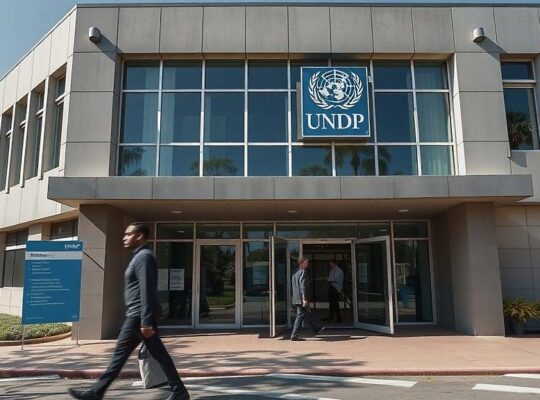North Rhine-Westphalia is pressing the federal government for stricter measures against social welfare fraud, escalating a growing political debate surrounding the exploitation of vulnerable individuals and the integrity of Germany’s social safety net. A formal request, submitted to the Bundesrat, highlights the increasing prevalence of derelict properties – often dubbed “scraimmobilien” – being exploited for fraudulent purposes, primarily impacting individuals from Southeastern Europe.
The proposal, detailed in a report by “Der Spiegel”, seeks to empower local municipalities with enhanced legal tools to combat the practice. Crucially, the request advocates for allowing municipalities to exercise their pre-emptive purchase rights even during compulsory property auctions. This aims to allow cities to acquire and rehabilitate these often substandard buildings, effectively disrupting the scheme. Furthermore, Jobcenters would be granted access to information regarding property habitability, enabling them to halt welfare payments to individuals registered at addresses deemed uninhabitable – a direct response to concerns about individuals fraudulently claiming benefits while residing in unsafe conditions.
The most contentious aspect of the proposal centers on a review of eligibility requirements for EU citizens accessing the “Bürgergeld” (citizen’s allowance). The North Rhine-Westphalia government has explicitly tasked the federal government with examining the feasibility of stricter conditions, a move likely to spark legal challenges and accusations of discriminatory practices. Advocates for the proposal contend it is necessary to safeguard the system from abuse, while critics argue it could violate European law and disproportionately affect vulnerable populations genuinely in need of assistance.
Beyond enforcement, the request underscores the need for a national situational overview concerning large-scale social welfare fraud orchestrated by organized criminal networks. North Rhine-Westphalia’s Minister-President, Hendrik Wüst, has framed the issue as a profound societal concern, arguing that the exploitation of vulnerable migrants fuels anxieties and undermines public trust in social programs. He asserted that the proposed measures are essential to dismantle criminal networks profiting from the systematic abuse of welfare benefits and the exploitation of individuals migrating from Southeastern Europe. The move signals a hardening stance on immigration and social welfare, placing significant pressure on the federal government to address concerns surrounding the integrity of the German social system and its potential for abuse.












